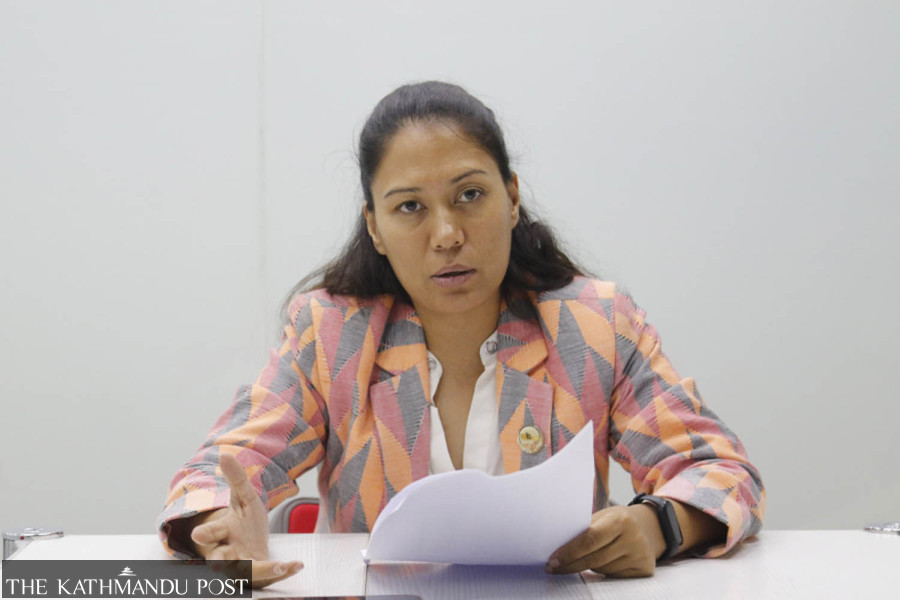National
All eyes on Sumana Shrestha over how she handles school education bill
Shrestha had a radical view of education reform and strongly opposed the bill before she became the minister.
Post Report
The Rastriya Swatantra Party lawmaker Sumana Shrestha, who is now the education minister, had objected to several provisions in the school education bill that is being discussed in a House committee.
Stating that the bill neither envisions boosting the quality of education nor is in line with the constitution, she has even demanded its redrafting.
Now that she has become the minister for education, science, and technology, she shoulders the responsibility to ensure the bill’s passage from Parliament. However, the government can withdraw the bill and present a new one if it wishes.
Though Shrestha hasn’t made public her position on the bill after becoming the minister, she has maintained that it needs to be discussed in all the provinces before giving it a final shape. As Bhanu Bhakta Joshi, chairperson of the Education, Health and Information Technology Committee of the House of Representatives, became minister earlier this month, the deliberation over the bill is on halt.
Unlike the position of Shrestha, the representatives of the teachers want the present bill to get through Parliament with some revisions. “We are against redrafting the bill. The present bill should be endorsed but with some revisions,” Kamala Tuladhar, chairperson of the Teachers’ Federation Nepal, said at an interaction on Sunday.
The federation says that teachers don’t want to work under local governments as they are biased against teachers on partisan grounds. It has presented 61 points of concern in the bill. Against the provision in the bill that allows local units to recruit, evaluate, transfer and demote or promote teachers, the federation wants those powers to rest with the provinces. It had even held a Kathmandu-centric protest against various provisions in the bill, which ended with an agreement with the government. The ministry has agreed to let teachers be managed by the provinces.
Contrary to their demands, the representatives of local governments suggested revisions to 37 points of the bill. In their common stand, the Municipal Association of Nepal and the National Association of Rural Municipalities in Nepal have demanded provisions authorising local governments to issue laws and policies on school education, and on the preparation and implementation of local curricula and textbooks.
Finalising the bill has become more challenging due to the mutually conflicting demands from the teachers and the local-level representatives.
Similarly, the private education operators and the student unions too have forwarded mutually conflicting demands. Student leaders from various parties have been claiming in one voice that converting the privately-owned schools into trusts is the only way to stop rampant commercialisation of school education. The private school operators, however, have maintained they must be allowed to operate under the company Act. Forcing them to get converted into trust is against the constitutional rights to property, they say.
It is under their pressure the Pushpa Kamal Dahal administration in September registered the bill omitting the mandatory provisions to get converted into trusts.
Speaking at the interaction, lawmakers from the House committee said they are for finding a win-win situation for all the stakeholders. “The discussions will commence once the House committee gets its chairperson,” said Ishwari Gharti, a member of the committee. However, it is not sure when the committee gets its chairperson.
The committee was led by the CPN (Unified Socialist) in an agreement among the parties in the previous coalition. As a new alliance has taken shape, it is still undecided which party gets the panel’s chair.




 10.12°C Kathmandu
10.12°C Kathmandu














